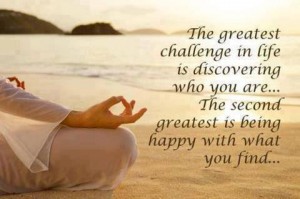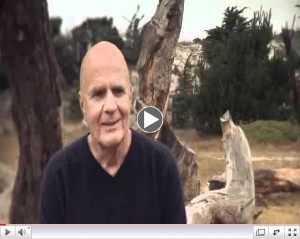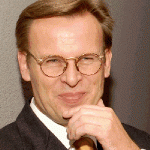Have you ever had a long amazing conversation with a friend, that took all kinds of turns neither of you could possibly have expected when you started the conversation? Wasn’t it awesome, to riff off each other, to explore unforeseen territory, to be free to wander and enjoy the time together?
What if, instead, you had a definite goal for how the conversation should go when you start out? A definite path and outcome of how you want the conversation to turn out? Let’s say you have an agenda, and every time one of you wandered off the agenda, you forced yourself to get back on it.
Would the conversation be better or worse, with a set outcome? Is it better to be free to wander, or to be set on one predetermined path?
I submit that the wandering is much better, much more amazing.
This is the goal-less path.
Why Work Without Goals?
For many years I was fixated on goals, but at the same time was also simplifying my work life and working on being more content.
I realized two things:
– Goals (wanting to improve) are not consistent with contentment (being happy with where you are).
– Goals are not necessarily necessary (I thought they were for a long time, but they’re not) – and so using my minimalist philosophy, they should be ruthlessly eliminated.
And so I decided to experiment, and see whether goals were really necessary. I found out that they weren’t.
Here are the results of my (mostly) goal-less experiment:
* We often think goals are necessary to achieve something, but in reality they’re not.
* Goals, as I define them, are having a set outcome … but why is that outcome the only good outcome? There are many, many great outcomes, and being fixed on one is very limiting.
* Goals are completely made up, with not a lot of information about what will happen in the future as we work on them. We invent them, out of some fantasy of how we want the future to go, but in truth they’re not realistic. And we can’t predict or control how the future will go, so setting goals is a useless activity.
* When we fixate on goals, we shut ourselves off to new opportunities that open up in different directions – opportunities that we couldn’t have foreseen when we started out. But because we’re fixated on the goal, we don’t allow ourselves to go in this new direction.
* When we fail to reach this fantasy outcome (which is often), we feel bad. But if we let go of the fantasy, we can just enjoy the work.
* When we are fixated on achieving a future outcome, we are not looking at where we are, nor are we happy with where we are. We can’t be, because we are looking at the future goal, and this is what motivates us (not enjoying the moment).
* When we have a future-oriented mindset, it doesn’t end if/when we achieve the goal. We achieve the goal, then immediately look to the next goal.
That’s just the start of the discussion – I could go on and on about this, but essentially this is a big illusion that our society believes in.
The 4 Principles
So how do you work without goals? Do you just do nothing? No, of course not … people who love what they do will wake up wanting to do something fun, something that benefits the world. I know this because even without a set goal, I am always excited to work on something.
How does this work? Instead of working with a fixed outcome (goal), work from moment to moment, using principles that work for you. Each moment, don’t ask “am I doing something to move me to my goal?” but instead ask, “Am I doing something right now that’s based on one of my values or principles?”
Your principles will differ from mine, but here are the ones that I’ve found work for me:
Love what you do. This seems obvious, but so often people do things that they’re not excited about. I try to find things that I love doing, and if there’s some mundane task I have to do for some reason, I either eliminate it or find a way to enjoy the hell out of it.
Help others. I am strongly motivated by the desire to do things that will help people – my readers, my friends, my kids, people in need. And so this principle guides everything I do, including all of my writing. I highly recommend it.
Build relationships & trust. Each thing you do, personally and for your business, should be building a relationship. I build relationships with my readers by being authentic and trying my best to help, and build relationships with friends & family in the same way. Being trustworthy as much as humanly possible is a great way to build relationships, so these two go hand-in-hand.
Be curious. When you’re curious about other people, and about life in general, you tend to be a better listener, a better friend, more informed, and have fun each step along the way.
Those four principles work well for working with no goals. They also work well for having a goal-less conversation, or wandering the world, or collaborating with people.
So wake up in the morning, and instead of figuring out how to further your goals, ask what you really feel like doing right now. What will make you happy now, instead of some distant time in the future? I submit that long-term goals, some nebulous fantasy in the future, aren’t that motivating – we’re more motivated by something that can pay off now, which includes things that make us happy as we do them.
As you figure out what you feel like doing right now, consider these four principles. And then take action, knowing that you’re helping people, building trust and relationships, making yourself happy, and satisfying your natural curiosity about others and the world.
Then repeat that, each step along your daily journey. Each step along the way, you’re doing something you love, something in line with your principles. You’re not just lining yourself up with some predetermined outcome, but you are already there.
Questions & Answers
Some common questions I get asked a lot:
Q: Isn’t having no goals a goal?
A: It can be a goal, or you can learn to do it along the journey, by exploring new methods. I’m always learning new things (like having no goals) without setting out to learn them in the first place.
Q: So how do you make a living?
A: Passionately! Again, not having goals doesn’t mean you stop doing things. In fact, I do many things, all the time, but I do them because I love doing them.
Q: Isn’t it easy for you to give up goals now that you’re successful?
A: Sure, that might make it easier, but really it’s not the success that has helped me give up my goals … it’s my contentment with who I am. I know that I’m a good person, and am happy with who I am, and know that I’ll be OK no matter what outcomes turn up. That’s true for pretty much everyone reading this, no matter how much “success” you have.
Q: Don’t you really have goals when you do something, like write this article or try to follow your 4 principles?
A: Sure, you can call them that if you want. The terminology isn’t that important – the principles are. My definition of goals is having a predetermined outcome (something you want to happen in the future), and most people don’t call “write an article” a goal. Their goals are more along the lines of “get a lot of readers” or “make a lot of money” or “complete X”. So if you want to say I have goals, that’s fine, but just realize that for me, the process itself is the goal.
Q: How do you start down the path of no goals, if you’re used to having goals?
A: Just start following the four principles (or your own principles) right now. Like, in this very moment. When you find yourself coming up with a goal (and I do all the time), recognize that, and realize that it’s a fantasy, and let it go, gently. (Thank you, Leo)
Do you have questions about the goal-less path? Share them with me here.

Dieter Langenecker
PS – just in case you’re the sort of person who skips straight to the PS 😉 the short story is that a goal is not necessarily necessary – there are many, many great outcomes, and being fixed on one is very limiting.
“Being myself includes taking risks with myself, taking risks on new behavior, trying new ways of being myself, so that I can see how it is I want to be.”
If you want personal support for living your life in meaningful happiness












